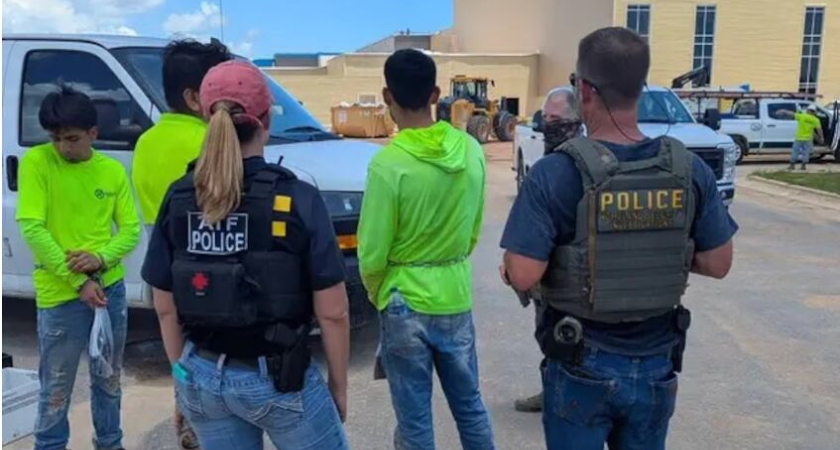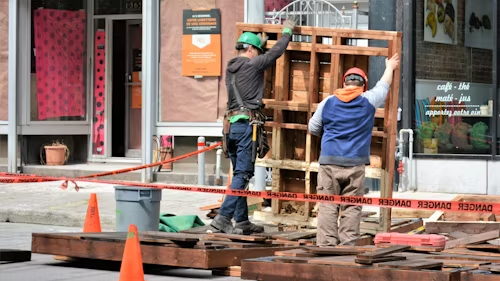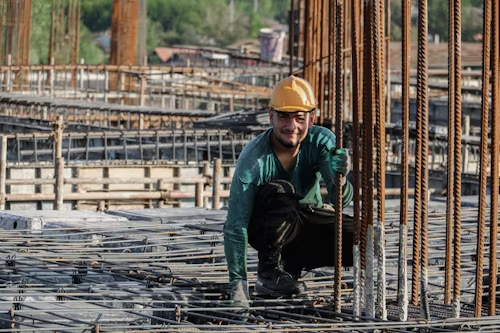
Alabama’s construction industry is raising alarms that the state’s ongoing labor shortage could worsen under the Trump administration’s aggressive immigration crackdown, threatening project timelines, business survival, and broader economic stability.

Tim Harrison, chairman of the Associated Builders and Contractors (ABC) of Alabama, said while the industry supports deportations of immigrants who commit crimes, the current approach is harming law-abiding workers who have long been part of the state’s construction workforce.
“From an economic standpoint, from our economy, taking this magnitude of workers out of our workforce will adversely affect our industry,” Harrison said. “It’s going to create higher prices, going to create slower timelines. It’s going to create some contractors going out of business because they can’t have employees. It’s just not a really good situation.”
This summer, federal raids on construction sites in Baldwin County led to the detention of nearly four dozen workers. In June, authorities raided a Gulf Shores high school project, detaining about 37 people. The following month, another raid at a Loxley school project resulted in 11 arrests. The crackdown has extended beyond Alabama, with 475 people detained in September at a Hyundai EV plant in Georgia.
“These guys on the job sites right now, their head’s on a swivel because they’re so concerned any minute that they may get raided,” Harrison said. “They’ve heard that some of these people throughout the process have been picked up even though they had documentation. There’s hysteria in that community.”
Retirement Systems of Alabama CEO David Bronner echoed the concern, noting that many immigrant workers have lived in the state for decades.
“These people who have been here 10 years, 15 years, never did a damn thing except feed their family and work and pay their taxes as legal as you could get, other than they came improperly 20, 30 years ago in some cases,” Bronner said.
Harrison said ABC of Alabama has met with state and federal officials, including Senators Katie Britt and Tommy Tuberville, to propose solutions. He emphasized that the goal isn’t automatic citizenship but a system that separates “bad actors” from reliable workers.
“What the industry wants,” Harrison said, “is to better identify the bad actors and create a way for other immigrants to remain in the country and work, under certain conditions.”
One idea under discussion is a visa-style program that would allow immigrant workers to remain if they undergo verification, pay restitution—possibly $15,000 over four years—and receive employer sponsorship. Harrison also suggested a short-term “essential worker” designation, similar to policies adopted during COVID-19 to keep critical industries functioning.
“The problem with this, in Washington, D.C., is it’s too common sense,” Harrison said. “It’s too easy. And getting our elected officials to agree to common sense doesn’t seem the norm anymore.”

ABC Alabama President Jay Reed said the labor shortage is among the top five challenges in his nearly three decades with the organization, which represents about 600 firms and 30,000 workers. Reed noted that while workforce development programs in Alabama schools are beginning to steer students toward the skilled trades, the pipeline isn’t strong enough to offset the loss of immigrant labor.
“We are turning the tide now,” Reed said. “People are thinking construction again and skilled trades. But unfortunately, at the time that we’re dealing with this right now, we just don’t have enough manpower to overcome something like this. But we want to work with President Trump to fulfill his mission on rebuilding America. And we want to find solutions that uphold the law, but allow us to find a path for immigrant workers on our job sites.”
Harrison stressed that immigrant labor is essential not just in construction but also in industries like forestry, poultry processing, and manufacturing.
“This is basically every industry that’s out there where manual labor is needed to produce the product,” he said.
He pushed back against claims that businesses simply want “cheap labor,” arguing that immigrant workers are well compensated.
“The truth of the matter is we’re paying these people at least equal wages, sometimes even more to be able to get them because they’re skilled, they’re productive and they work as much as you will let them,” Harrison said. “The only time this population will not work historically is on Sundays. That’s because they want to spend time with their families and in their church.”
Despite the mounting uncertainty, Harrison said industry leaders remain committed to working with policymakers.
“This is a marathon,” he said. “This ain’t a sprint. And that marathon includes a temporary stay here on this as well as a long-term fix.”
Originally reported by Mike Cason in AL. Com.